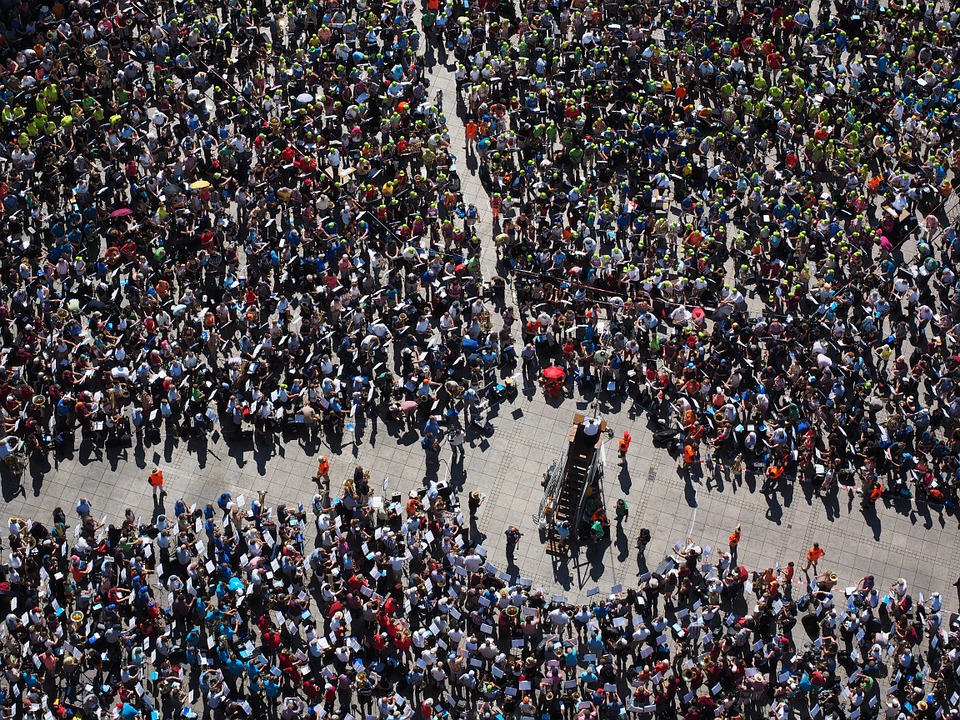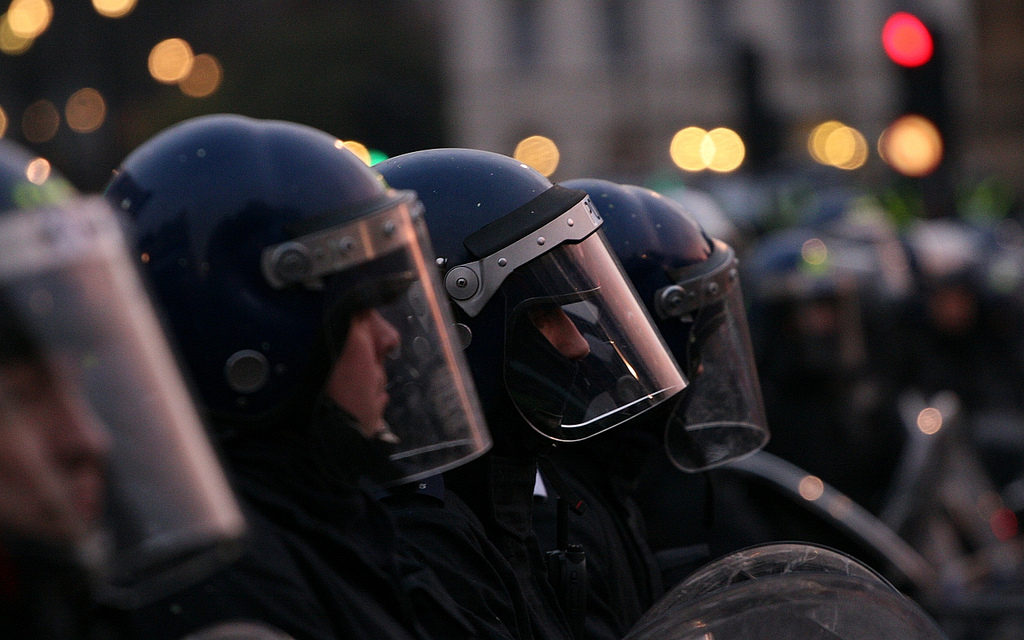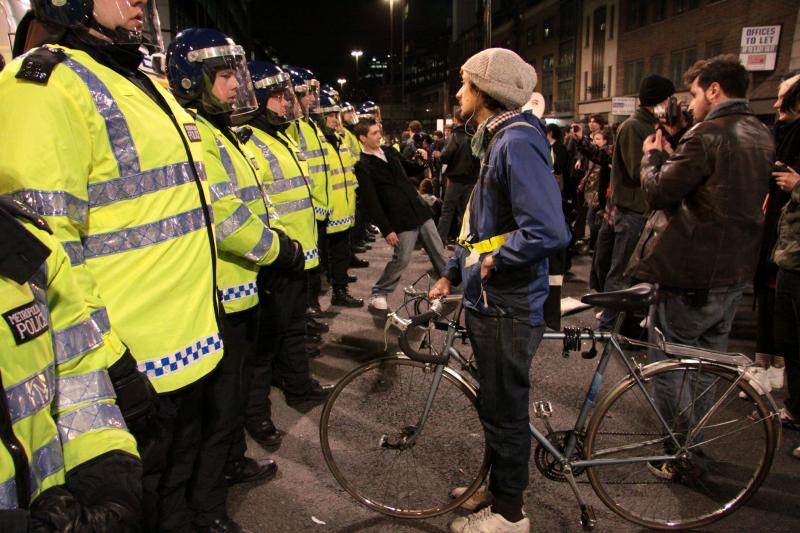Six years ago a landmark judgement known as Austin v UK was handed down, which still has huge significance for policing in this country.
On 1 May 2001, more than 1,500 people gathered in London to take part in anti-globalisation protests. Police dealing with the protests cordoned off Oxford Circus, keeping everyone inside.
This measure is known as ‘kettling’. It’s designed for crowd control, but can impinge on people’s liberty and freedom of movement. Once you’re in a kettle, you may be held against your will.
Some of the people caught in the kettle wanted to leave. One, Ms Austin, was a protester who needed to collect her daughter from a crèche that afternoon. Two were office workers on their lunch break, and another was a pedestrian on his way to a bookstore. These last three hadn’t been protesting, but happened to be in the area when the kettle was imposed.
Along with numerous others, the four were trapped for seven hours behind the police cordon. There was no access to food, water, or toilet facilities. The workers were unable to return to work that day. The four brought a case, Austin and Others v the United Kingdom, to the European Court of Human Rights.
Different Points of View

The case rested on whether the police cordon breached Article 5 of the Human Rights Convention. Article 5 states that “everyone has the right to liberty and security of person.” It also sets out – at Article 5(1), paragraphs (a) to (f) – when an individual can be lawfully detained.
The State argued that the Court had to strike a fair balance between the rights of the individuals and the interests of the community. Although individuals have a right to liberty, the public also has the right to be protected against potentially violent protests. The purpose of the cordon was to maintain order, not to deprive people in Oxford Circus of their liberty. Article 5 guards against arbitrary detention which, the UK claimed, was not the case here.
On the other side, the four individuals argued that their detention in the kettle meant they were deprived of liberty. Article 5(1)(a) to (f) provides an exhaustive list of situations in which individuals can be deprived of liberty, which strikes a fair balance between individual rights and community interests. Deprivation of liberty is only acceptable when it meets these ECHR criteria. A public interest defence is not included in Article 5 so, they claimed, the purpose of the cordon was irrelevant.
What did the European Court of Human Rights decide?

The Court ruled in favour of the UK with a majority of 14 to 3. This meant that the individuals’ rights to liberty had not been violated.
The first question in a case concerning Article 5 is whether there has been a deprivation of liberty. If there is, the next question is whether deprivation of liberty is justified for any of the reasons given in Article 5(1)(a) to (f).
In this case, the Court concluded that there had in fact been no deprivation of liberty. The Court decided that restrictions on movement which are unavoidable due to circumstances beyond the control of the authorities, necessary to avoid real risk of serious injury or damage, and which are kept to the minimum required for that purpose, cannot properly be described as “deprivations of liberty” within the meaning of Article 5.
The Court also ruled that Article 5 must be interpreted in a way which takes into account the specific context in which the techniques are deployed, as well as the responsibility of the police to maintain order and protect the public. The Court emphasised that modern communication technology allows large groups of protesters to gather quickly. Kettling provided the police with a means of responding to these new challenges which enabled them to contain the crowd rather than resort to ‘more robust methods which might have given rise to a greater risk of injury.’
Although it found no violation of Article 5 on the facts of this case, the Court stressed that kettling, and other forms of crowd control, can potentially lead to deprivations of liberty. However, that will depend on the facts of each case. The Court also made it clear that the police cannot abuse their powers to ‘stifle or discourage protest.’
No deprivation of liberty?

Permitting the detention of individuals who have committed no crime, in the name of public interest, would seriously weaken Article 5. The majority of the Court emphasised this was not its intention. However, the three dissenting judges warned that the ruling could be interpreted differently.
They argued that the majority’s approach seemed to imply that States could avoid the guarantees in Article 5, and detain people for a whole range of public interest reasons (going beyond those set out in Article 5(1)(a) to (f)), as long as they could show a detention measure was necessary by appealing to the need to balance the interests of the State against those of the persons detained.
In the dissenters’ view, there had been a deprivation of liberty. By keeping everyone inside the cordon, the measure was imposed even against people taking no part in the demonstration. The dissenting judges claimed that the police could have been expected to use less intrusive means. In their opinion, the Court should have found a violation of the right to liberty in this case.
You can read the full judgment in Austin v UK here.
For more information:
- Read our story about the Austin v UK case.
- Take a look at our infographic poster on the right to liberty.
- Learn about your rights under the European Convention on Human Rights.







